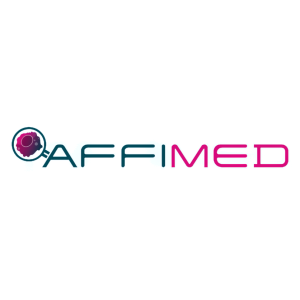Affimed Reports Positive Clinical Update on AFM24/Atezolizumab Combination Therapy in Non-Small Cell Lung Cancer (NSCLC)
Rhea-AI Summary
Affimed (AFMD) reported positive clinical data from the AFM24-102 trial combining AFM24 with atezolizumab in non-small cell lung cancer (NSCLC) patients. In 33 EGFR wild-type patients, the combination showed a 21% overall response rate and 76% disease control rate, with tumor shrinkage in 48% of patients. The median progression-free survival was 5.6 months.
In 17 EGFR mutant patients, results showed a 24% overall response rate and 71% disease control rate, with tumor shrinkage in 41% of patients. Both patient groups demonstrated manageable side effects. A post-hoc analysis revealed that patients with higher AFM24 exposure had significantly better outcomes, leading to plans for using a higher 720mg weekly dose in future development.
Positive
- 21% overall response rate in EGFR wild-type NSCLC patients
- 24% overall response rate in EGFR mutant NSCLC patients
- 76% disease control rate in wild-type patients
- 5.6 months median progression-free survival in both cohorts
- Higher AFM24 exposure linked to better patient outcomes
- Well-manageable safety profile with no new safety concerns
Negative
- Only 36% of wild-type patients remain on treatment
- sample size with only 33 wild-type and 17 mutant patients evaluated
News Market Reaction 1 Alert
On the day this news was published, AFMD declined 29.11%, reflecting a significant negative market reaction.
Data tracked by StockTitan Argus on the day of publication.
- In 33 heavily pretreated NSCLC EGFR wild-type (EGFRwt) patients the combination of AFM24 and atezolizumab shows an overall response rate (ORR) of
21% (6 confirmed responses, 1 response awaiting confirmatory scan) and a disease control rate (DCR) of76% ; tumor shrinkage was observed in48% of patients; preliminary median progression free survival (PFS) is 5.6 months and36% of patients remain on treatment - In 17 heavily pretreated NSCLC EGFR mutant (EGFRmut) patients the combination shows an ORR of
24% and a DCR of71% ; tumor shrinkage was observed in41% of patients; median PFS is 5.6 months and 5 patients (29% ) are on treatment for over 10 months - Both cohorts demonstrated a well-manageable side effect profile with no new safety signals identified
- A post hoc analysis demonstrated that patients who achieve higher exposure of AFM24 had significantly higher response rates and improved PFS and survival compared to patients with lower exposure
- Company to review results on a webcast today at 8:30 am EST / 14:30 CET
MANNHEIM, Germany, Dec. 17, 2024 (GLOBE NEWSWIRE) -- Affimed N.V. (Nasdaq: AFMD) (“Affimed,” or the “Company”), a clinical-stage immuno-oncology company committed to giving patients back their innate ability to fight cancer, today announced updated clinical data from the ongoing AFM24-102 trial of AFM24/atezolizumab combination therapy in heavily pretreated NSCLC patients. Results continue to demonstrate meaningful clinical activity in both NSCLC EGFRwt and EGFRmut patients with good tolerability. In addition, the Company reported findings from a post-hoc exposure-response analysis in patients treated with 480 mg AFM24 showing higher AFM24 exposure is associated with significantly better response rates, improved PFS and overall survival (OS). Based on these data, the future development program for AFM24 will use a dose of 720 mg weekly, a dose that has already been successfully tested in the phase 1 study of AFM24 showing a manageable safety profile.
“With the compelling data from both EGFR wild-type and mutant cohorts, along with the exposure-response analysis we are unlocking the possibilities for the AFM24/atezolizumab combination in treating heavily pretreated NSCLC patients,” said Dr. Shawn Leland, PharmD, RPh, Chief Executive Officer of Affimed. “These findings highlight our opportunity to further refine and advance this treatment with a clear focus on patients who stand to benefit the most. We are excited about the path ahead and are committed to exploring innovative strategies to bring this promising therapy to those in need.”
NSCLC EGFR Wild-type Cohort Update
Patient population: As of the November 14, 2024 data cut, there were 43 patients in the full analysis set (FAS) and 33 patients in the per protocol set (PPS), defined as having one post baseline scan according to RECIST. Reasons for non-evaluability were early symptomatic deterioration (6), non-related AEs (2), too early (2). Patients had a median of 2 prior lines of therapy (range: 1–7). All patients had received platinum-based combinations and PD(L) 1 targeting checkpoint inhibitors (CPIs), and two-thirds had received taxanes. Importantly, all but one patient discontinued their previous CPI because of progression.
Safety: The AFM24 and atezolizumab combination therapy was well tolerated with no unexpected safety findings. Infusion related reactions (IRRs) were the most common adverse event (AE) reported, in
Anti-tumor activity and durability (N=33, PPS): The combination demonstrated an ORR of
NSCLC EGFR Mutant Cohort Update
Patient population: As of the November 14, 2024 data cut, 28 patients were in the FAS (reasons for non-evaluability at the cut-off were: ongoing with no scan yet 5, early deterioration 4, non-related AEs 2), with updated results presented for the first 17 patients in the PPS. All patients had received prior EGFR specific TKI therapy, and
Anti-tumor activity and durability (N=17, PPS): AFM24 combined with atezolizumab showed promising activity in refractory NSCLC EGFRmut patients achieving an ORR of
Post-Hoc Exposure-Response Analysis
Analysis process: A post-hoc exposure-response analysis was conducted including NSCLC EGFRwt and EGFRmut subjects (n= 44) treated with 480 mg AFM24 in both the AFM24-101 monotherapy study or the AFM24-102 AFM24 combination with atezolizumab study. Low and high exposure groups were calculated using a median cut-point of patient`s mean trough values.
Safety, anti-tumor activity and durability: Baseline characteristics were balanced between the high and low exposure groups and there were no differences in body mass index or percentage of administered dose that would explain differences in exposure. The high exposure group showed an ORR of
“Advanced-stage NSCLC remains one of the most challenging cancers to treat, and our findings bring new hope,” said Dr. Andreas Harstrick, MD, Chief Medical Officer of Affimed. “We see compelling efficacy results with the AFM24/atezolizumab combination in heavily pretreated NSCLC patients, independent from the mutational status. The results are remarkable as we achieve this with a purely immunotherapy-based approach in patients that are often not able or not willing to take additional toxic therapies. The insights in the relation of exposure and efficacy will allow us to further improve on the efficacy and provide a clear path forward as we strive to unlock new possibilities for EGFR NSCLC patients.”
About AFM24
AFM24 is a tetravalent, bispecific ICE® that activates the innate immune system by binding to CD16A on innate immune cells and epidermal growth factor receptors (EGFR), a protein widely expressed on solid tumors, to kill cancer cells. Generated by Affimed’s fit-for-purpose ROCK® platform, AFM24 represents a distinctive mechanism of action that uses EGFR as a docking site to engage innate immune cells for tumor cell killing through antibody-dependent cellular cytotoxicity and antibody-dependent cellular phagocytosis.
About Affimed N.V.
Affimed (Nasdaq: AFMD) is a clinical-stage immuno-oncology company committed to giving patients back their innate ability to fight cancer by actualizing the untapped potential of the innate immune system. The Company’s innate cell engagers (ICE®) enable a tumor-targeted approach to recognize and kill a range of hematologic and solid tumors. ICE® are generated on the Company’s proprietary ROCK® platform which predictably generates customized molecules that leverage the power of innate immune cells to destroy tumor cells. A number of ICE® molecules are in clinical development, being studied as mono- or combination therapy. Headquartered in Mannheim, Germany, Affimed is led by an experienced team of biotechnology and pharmaceutical leaders united by the bold vision to stop cancer from ever derailing patients’ lives. For more about the Company’s people, pipeline and partners, please visit: www.affimed.com.
Forward-Looking Statements
This press release contains forward-looking statements. All statements other than statements of historical fact are forward-looking statements, which are often indicated by terms such as “anticipate,” “believe,” “could,” “estimate,” “expect,” “goal,” “intend,” “look forward to,” “may,” “plan,” “potential,” “predict,” “project,” “should,” “will,” “would” and similar expressions. Forward-looking statements appear in a number of places throughout this release and include statements regarding the Company’s intentions, beliefs, projections, outlook, analyses and current expectations concerning, among other things, the potential of acimtamig (AFM13), AFM24, AFM28 and the Company’s other product candidates; the value of its ROCK® platform; its ongoing and planned preclinical development and clinical trials; its collaborations and development of its products in combination with other therapies; the timing of and its ability to make regulatory filings and obtain and maintain regulatory approvals for its product candidates; its intellectual property position; its collaboration activities; its ability to develop commercial functions; clinical trial data; its results of operations, cash needs, financial condition, liquidity, prospects, future transactions, growth and strategies; the industry in which it operates; the macroeconomic trends that may affect the industry or the Company, such as the instability in the banking sector experienced in the first quarter of 2023; impacts of the COVID-19 pandemic, the benefits to Affimed of orphan drug designation; the impact on its business by political events, war, terrorism, business interruptions and other geopolitical events and uncertainties, such as the Russia-Ukraine conflict; the fact that the current clinical data of acimtamig in combination with NK cell therapy is based on acimtamig precomplexed with fresh allogeneic cord blood-derived NK cells from The University of Texas MD Anderson Cancer Center, as opposed to Artiva’s AB-101; and other uncertainties and factors described under the heading “Risk Factors” in Affimed’s filings with the SEC. Given these risks, uncertainties, and other factors, you should not place undue reliance on these forward-looking statements, and the Company assumes no obligation to update these forward-looking statements, even if new information becomes available in the future.
Affimed Investor Relations Contact
Alexander Fudukidis
Director, Investor Relations
E-Mail: a.fudukidis@affimed.com
Tel.: +1 (917) 436-8102
Affimed Media Contact
Mary Beth Sandin
Vice President, Marketing and Communications
E-Mail: m.sandin@affimed.com







